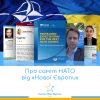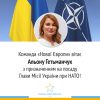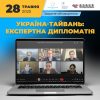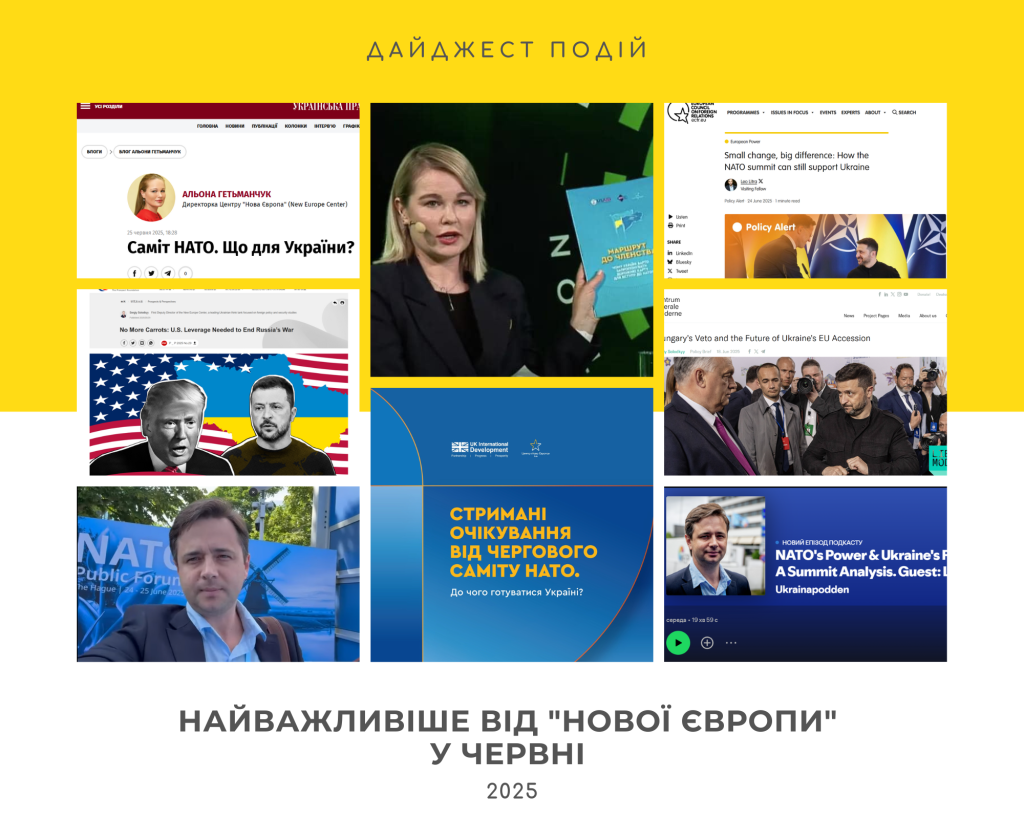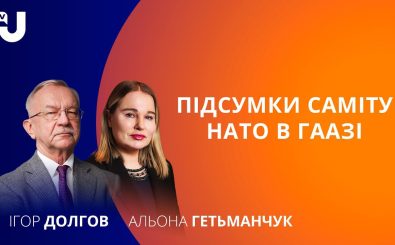What are the main components of an innovative state? How can Ukraine use the experience of Israel in the field of innovation? This and many other things were discussed during the Workshop №5 “Israel’s Nurturing Innovation” on the conference “Israel’s Experience of Nation-Building: Lessons for Ukraine”, that was held by the New Europe Center and Ukrainian-Jewish Encounter on June 12.
Ron Prosor, Head of the Abba Eban Institute of International Diplomacy, Representative of Israel to the United Nations (2011-2015)
The armed forces are one of the driving forces behind the development of Israel’s technology.
- «The army is in essence a liability, but we managed to bring it also into asset. Why? You have at your disposal at the age of 18 the best and the brightest minds».
- «We put the relevant people to challenge the existing paradigms in the field that in essence creates innovations. For example, the army is a place where we have to put in a lot of resources, a lot of manpower. At the end of the day this is spin-offs to our technology. So, if we need to give answers to missiles from Iran, this is the need for our space program. If we need something else, this is the need for another program».
When introducing innovation, do not be afraid of failures.
- «Jewish society in essence supports failure. If you fail, try again. So if I have to say something to Ukraine: open it up, allow questions in every field. By working together and asking relevant questions you reach amazing results».
Israel created a new society from people who came from different countries.
- «The differences in culture, do you put them together, do you put them in different parts in order for them to be integrated in the society? The thing here is Israel`s melting pot which you would see on the cultural zone, amazing things coming out of music, dance. It comes from debate between different cultures. That creates a new culture which is very diverse».
Ukraine, like Israel, must clearly understand its strengths and weaknesses.
- «But why I`m using it as an example – it explains some traits of the Israel`s culture. Sports needs discipline, hard work, but we are not good at this. So we have to find the ways what added value Ukraine can get from Israel. We are creative, innovative, but we are not good at structures. So we have to learn a lot from others on this and in your case, you have to find out your minuses and pluses and understand that minuses are a real problem of culture».
Dan Meridor, President, Israel Council on Foreign Relations, Deputy Prime Minister of Israel (2009-2013)
Innovation of the state depends on the critical thinking of society.
- «I visited South Korea (Seoul) some years ago for participating in a conference on global nuclear security. During one of our dinners, I was asked why we are so smart. I said we are not that smart, we found the way, it`s the Talmud, the way you study. Talmud is the book of Jewish religion and Jewish law. The key idea is nothing is given as if it`s only God`s word, the discussion is here, to learn to discuss, to learn from the outset».
- «I read that the Jews are only 0.2 % of the world`s population, but they are 20 % of Nobel laureates. It’s something in the culture of casting doubt, asking the questions, finding different solutions, not to accept the given norm is embedded in our heritage. That`s why we have so much innovative spirit, entrepreneurship».
Three main components of Israel in the development of an innovative state:
- «Israelis took the responsibility. We cut the budget deficit, we have no deficits for last 30 years. It was a major thing».
- «The second thing, we allowed liberalization in the foreign currency market, in the labor market».
- «The third thing is about the 9 million people that joined us in the late 80s –beginning of the 90s, who were products of the Soviet education. They came with a lot of knowledge. So many people came with talents and creating demand and supply».
The success of the state in the modern world depends on human potential, not natural resources.
- «The richness or being poor was measured by ways how much oil, how much energy you have and so on. We were quite worried that Arabs around us got a lot of oil. I think today much more depends on what you have in your brains. It`s not because of us, the world is going in the direction of developing technologies».
Israel gave freedom of action to immigrants, instead of integrating them centrally into society.
- «What concerns two waves of immigration, one huge wave from the former Soviet Union and a smaller one of people who come from Ethiopia. It`s a very different issue. The younger ones took it easier, but some people didn`t know the basic things. The decision was that we wouldn`t tell anybody what to do, where to live, we would give them money. People have never been in a free society, but we decided not to tell them what to do. In the end, unemployment was very high. But in fact people quickly learned how to swim and it`s a huge success story».
Roman Zinchenko, Co-Founder, GREENCUBATOR
Resource constraints can be a driving force in innovation.
- «Here in Ukraine we are praising ourselves for being the leader in agriculture. Well, do we have something to learn? Certainly. One of my favorite caves of resourcefulness in the Israeli history comes from another key book. It`s a story about drilling over half a km deep to get to water, people got the water which was warm and salty, you can barely grow something using salty water. They were first desperate, then resourceful that`s why they start fish farming in the desert».
An existential threat can also be a driving force for innovation.
- «Golda Meir said: when people are saying they gonna kill you, believe them. During the times of existential threat the creation of innovations in Israel was amazing».
Resources are not the most important thing for innovative economy.
- «We should replace our culture of “Zrada” (betrayal) by the culture of positive disagreement and fighting for the positive solutions and that can drive a lot of innovations both in the government, in the communities and in business, because we need new industries, new meanings and new models».
Mykola Movchan, Deputy Minister of Youth and Sport of Ukraine on European Integration
Ukraine attaches great importance to cooperation with international organizations and other countries in the issues of youth.
- «For example, with UNISEF we have an innovative project – U-report, with UNDP we have a project- My career, when young people can register and can make a test about their future prospects , what profession they are suitable for. Another example – Bank of youth initiatives, where people in cooperation with the Leadership Academy can elaborate their initiatives, implement them and spread the information about this».
- «We have also introduced a project- Ukrainian youth delegate to the UN in the framework of the program “Youth will change Ukraine”. The idea is dreaming about great things, working, studying, learning. Every year we organize competitions among Ukrainian youth and the most talented ones are selected for two weeks-one month fellowship in the permanent mission of Ukraine in the UN. They work as diplomats, they have speeches there».
The main theses of the speakers of the plenary session (available only in Ukrainian)
The main theses of the speakers of the Workshop №1 “National security and human rights: how to find a balance in ensuring public interests?”
The main theses of the speakers of the Workshop №2 “Solidifying the nation: language, education, inclusion” (available only in Ukrainian)
The main theses of the speakers of the Workshop №3 “Israel’s public diplomacy: countering disinformation and promoting state image abroad” (available only in Ukrainian)
The main theses of the speakers of the Workshop №4 Israel’s Relations with its Diaspora (available only in Ukrainian)
The main theses of the speakers of the Workshop №6 “The Defense Sector and Innovation: Israel’s Experience” (available only in Ukrainian)
Also see the photos from the conference and videos of the all Workshops



